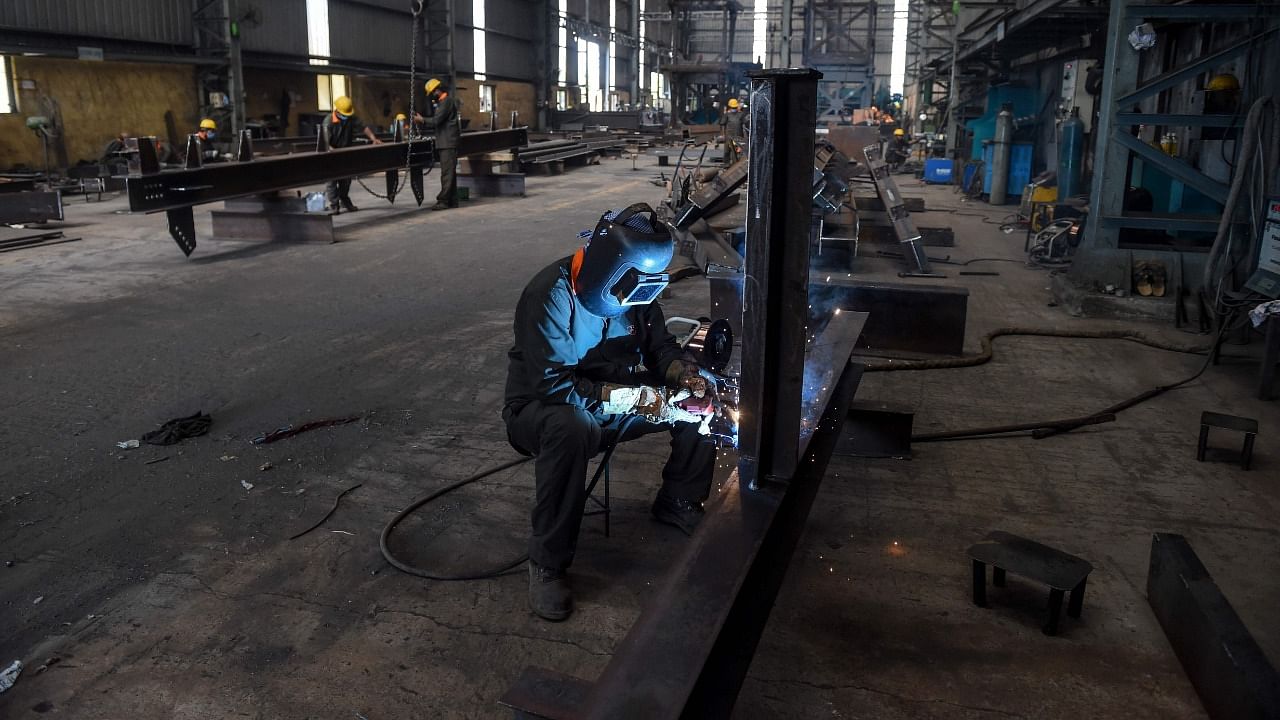
Indian companies are counting on yet another pandemic-era Budget to bolster economic growth and their own fortunes.
From approval of an input tax credit to a cut in indirect tax rates, from better policies to regulate the logistics industry to more funds to set up electric vehicle charging stations, India Inc has a long list of expectations from Finance Minister Nirmala Sitharaman, who will present the Union Budget on February 1.
The short version is this: Put more money in the hands of businesses and taxpayers alike so that they can spend more and revive the economy.
Experts expect the government to spend more too as it looks for ways to revive Asia’s third-largest economy.
“The budget will be characterised by infrastructure spending as we go into the penultimate year of the current term with the finance minister loosening the purse strings for development projects,” said Ricky Kirpalani, Lead Sponsor at First Water Capital Fund.
Here’s what the denizens of India’s prominent business sectors want from Budget 2022.
Real estate
The Indian real estate sector wants the government to increase the tax rebate on home loans to Rs 5 lakh from Rs 2 lakh, grant it “industry status” and revisit the affordable housing criteria.
“The cap on the affordable housing projects of Rs 45 lakh is very minimal, therefore, we urge the government to increase the limit to up to Rs 80 lakh in metro cities and Rs 50 lakh for non-metro cities”, said Atul Goyal, the chief financial officer of Brigade Enterprises.
Another major constraint the sector faces is rising input costs.
The real estate companies want the government to reduce the Goods & Services Tax (GST) and allow for an input tax credit. “(This) can help developers stabilise the rising costs of raw materials. Currently, margins are hurt as labour and commodity costs have risen”, said Ashish Puravankara, Managing Director, Puravankara Limited.
Mumbai based home-loan startup Easiloan’s CEO Pramod Kathuria said that a bigger GST waiver will lower property prices and provide the much-needed impetus for housing demand.
Manufacturing
Domestic companies engaged in making goods are entitled to a lower income tax rate of 15% if they commence manufacturing activities in newly setup companies by 31 March 2023.
“In light of the ongoing pandemic, the manufacturing plans of several companies have been delayed and it is a major ask of the industry to defer the deadline by at least two years,” said Himanshu Parekh, Partner - Tax, KPMG India.
Manufacturing companies also want help from the government to cope with high raw material costs and global supply chain issues.
Meanwhile, micro, small and medium enterprises (MSMEs) demanded better policy reforms to compete better in the global markets.
“The government should formulate a policy that focuses on indigenization in high-priority technology areas, thereby allowing MSMEs to design products that are globally competitive.” said Anurag Gupta, Joint Managing Director at Roto Pumps.
Electric Vehicles
The electric vehicle segment wants the government to do more to improve the charging infrastructure in the country.
“There is a tremendous requirement to mandatorily ensure EV charging infrastructure to be set up in all existing and upcoming housing projects and commercial establishments,”Ather Energy’s co-founder and CEO Tarun Mehta said.
Others such as Suhas Rajkumar, CEO & Founder of Simple Energy, wants the government to offer more relief to younger, ambitious EV companies which have been hit by rising component prices and a global chip shortage. He wants the finance minister to promote EV company collaboration and divert more funds towards the government’s clean fuel vision.
EV charging facilitator EVRE urged the government to subsidise the cost of new electrical connections and fixed load charges for EV charging point operators in a bid to boost the country’s charging infrastructure.
The Council on Energy, Environment and Water wants the government to commit more funds for mainstreaming green technologies.
Logistics
India’s logistics costs are estimated at about 14 per cent of GDP, a huge disadvantage versus other developing countries which see that figure pegged at 8-10 per cent.
Rating agency ICRA expects finance minister Nirmala Sitharaman to implement a national logistics policy to bridge India’s supply chain gaps and improve the global competitiveness of the logistics industry, a key stakeholder in India’s vision of becoming a $5-trillion economy. It also wants the government to back digitisation and automation to lower compliance costs.
“We expect the budget to focus on strengthening logistic and expedite connectivity projects in various economic zones thereby helping reduce logistics cost and time, improving productivity and economy,” said Yogesh Patel, Chief Finance Officer, Mahindra Logistics.
Check out latest DH videos here